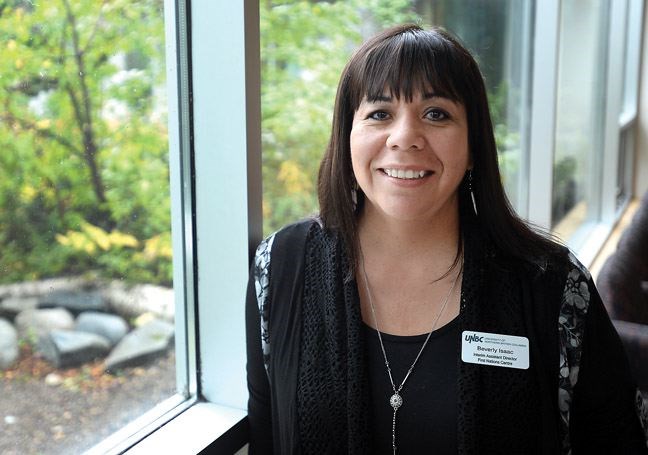Both of Prince George's campuses have set up programs to support aboriginal students with the help of provincial funds.
The Ministry of Advanced Education handed University of Northern B.C. $200,000 and the College of New Caledonia $375,000 through its annual Aboriginal Service Plan program.
"It is one of our main funds that we receive through unbc for aboriginal programming," said Beverly Isaac, manager of aboriginal student engagement at UNBC. "It's really important for us so that we can provide those supports and resources to our aboriginal students as well as non-aboriginal for educational purposes."
It means UNBC can again offer the five programs it launched last year with the same amount: an elder-in-residence program, aboriginal community connections coordinator, alumni speaker series, academic coaches for students in regional campuses and spring into transition for Grade 11 and 12 students looking into a post secondary education.
Isaac sees the same programming a sign of its success.
"That's the goal of ASP," she said. "The first year you're getting your feet wet, ironing out the wrinkles, figuring out what works, what doesn't work and so by the second year hopefully you have it down pat."
Marlene Erickson, CNC's director of aboriginal education said ASP has funded student support workers at its campuses since 2008 and that's where the money will go again this year.
"There’s an ongoing need," she said.
The workers are slightly different depending on what communities near each of the campuses need, whether it's an elder and cultural advisor, an aboriginal liaison or academic support worker, or a combination - all of which take culture and traditional knowledge into account.
Erickson said the ASP funding means the college can offer both culturally appropriate supports, but also helps it host cultural events.
"They have a dual effect - creating a sense of inclusiveness and belonging - but also for everyone else at the college, it creates understanding about aboriginal students and their communities," she said. "It builds bridges and binds us together as a college community. It’s really significant and we are appreciative of the funding."
At UNBC, Isaac said the elder in residence program was the biggest hit.
"We're going to be expanding by inviting both students and elders who are farther away," she said, which should remind people that UNBC isn't just a Prince George campus. "We're trying to hit a diverse body of students and elder that represent the same that access unbc and the FN Centre."
The alumni speaker series is also a great way to remind struggling students there's light at the end of the academic tunnel.
"We get to highlight our graduates - students who have gone through that educational journey," said Isaac, adding they hope to increase the number of speakers to one every month. "They get to share that and come back and share that with new students and show them it is doable... and the challenges that they're facing is nothing new."
Also in the north, through ASP Northwest Community College was given $341,831, in part for its trades program focusing on aboriginal learners.
B.C. awarded 3,340 credentials in last year, more than 1,200 behind its 2020 goal. Its Aboriginal Framework said B.C. planned to increase aboriginal credentials by 75 per cent over a decade, from 2,634 in 2010 to 4,609 in 2020.

.png;w=120;h=80;mode=crop)

